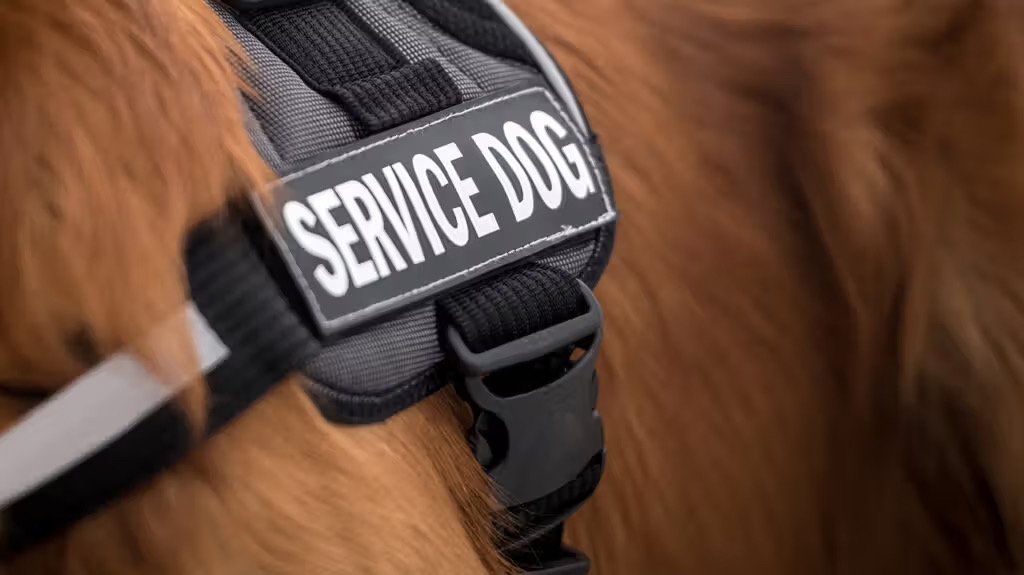
Learn About Our Service Dogs.
Dogs Making A Difference.
Have you been thinking about adding a Service Dog to your family? This can be a huge step in gaining independence and improving overall quality of life. Learn about the benefits of a Service Dog.
1.Enhanced Independence
Service dogs are trained to assist individuals with disabilities, helping them perform daily tasks such as opening doors, retrieving objects, or turning on lights, which promotes greater independence.
2.Improved Safety
They can alert their owners to specific hazards, such as low blood sugar levels, seizures, or allergic reactions, providing an added layer of safety and early warning.
3.Support with Medical Conditions
Service dogs are trained to respond to medical emergencies, such as seizure detection or alerting for PTSD episodes, enabling quicker responses and management.
4.Emotional Support and Stability
Beyond physical assistance, service dogs offer emotional comfort, reduce feelings of loneliness, and alleviate anxiety or stress related to disabilities or mental health conditions.
5.Increased Mobility and Confidence
Having a service dog can boost confidence in navigating public spaces, attending social activities, and performing routine tasks, which might be challenging otherwise.
6.Legal Rights and Access
In many regions, service dogs are legally allowed to accompany their owners in public places where animals are typically not permitted, ensuring access to essential services and environments.
7. Companionship
Alongside their assistance roles, service dogs provide companionship, which can have positive effects on mental well-being.
Overall
A service dog can significantly improve quality of life, independence, and safety for individuals with disabilities or health conditions, making daily life more manageable and enriching.





FAQs
-
A service dog is a specially trained dog that assists individuals with disabilities or medical conditions by performing specific tasks to help them lead more independent lives.
-
Service dogs can be trained to alert for seizures, assist with mobility, retrieve objects, open doors, provide balance support, alert to medical issues like low blood sugar, and more.
-
No, under the law in many regions, you are not required to carry documentation or certification to have a service dog, but certain organizations may require verification of your disability. We do require those who are interested in getting a Service Dog have a recommendation letter from a health care provider.
-
Generally, yes. Under laws such as the ADA in the U.S., service dogs are allowed in public places, including restaurants, stores, public transportation, and healthcare facilities.
-
Service dogs are trained to perform specific tasks related to a disability, while emotional support animals provide comfort but are not trained for specific tasks and may have different legal rights.
-
Training typically takes 1 to 2 years, depending on the tasks the dog needs to perform and the individual needs of the handler. We have many dogs that are in different phases of the training process, and it generally takes 6-8 months to get a dog, once your application has been approved.
-
The cost varies widely depending on training and tasks the dog needs to be trained for. Pricing can range from $19,00 to $30,000. Due to the high demand and limited availability of spaces available, we only work with clients that are able to pay out of pocket for the training and for the dog.
-
Our payments are split into three nonrefundable portions. The first 1/3 is due at signing of the contract. The second 1/3 is due in the middle of the training program, and the last 1/3 is due at the day before delivery. We also offer a $1,500 discount for paying in full at the time of singing the training contract.
-
Breeds we recommend depend on what the needs of the client are. Typically we work with the following breeds: Labrador Retrievers, Golden Retrievers, German Shepherds, Standard Poodles, Collies, Boxers, Dobermans, and for active clients Belgian Malinois.
-
We typically don’t recommend rescue dogs for service dogs and we are not able to get a full health history and genetic understanding of the dog, and unknow behavior related issues. We do on occasion train rescue dogs, but it has to be a very special dog that passes an extensive handing and behavioral assessment.
-
The dogs are typically between 1 year and 2 years old when they come home with their new owners.
-
Both male and female dogs are equally capable of doing the job. Often it comes down to the client personal preference.
Get in touch.
If you have read through all of our information, and you’d like to speak to us further regarding your future service dog, please call, text or email us, and we will be happy to talk to you about your specific needs.



